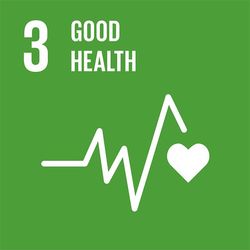The Sustainable Development Goals (SDGs) represent a global blueprint for dignity, peace, and prosperity for people and the planet, now and in the future. For the energy sector, these goals present both a significant challenge and an unparalleled opportunity to pivot towards more sustainable practices.
Our approach to integrating the SDGs involves a comprehensive framework that aligns our business strategy with sustainable development objectives. This includes assessing our impact on these goals, setting measurable targets, and engaging with partners across industries to drive collective action. As such, all relevant mentions regarding our approach and implementation of the SDGs will be marked accordingly throughout our 2023 Sustainability Report.
Our aim is to not only advance our sustainability agenda but also to inspire and lead by example in our industry.















